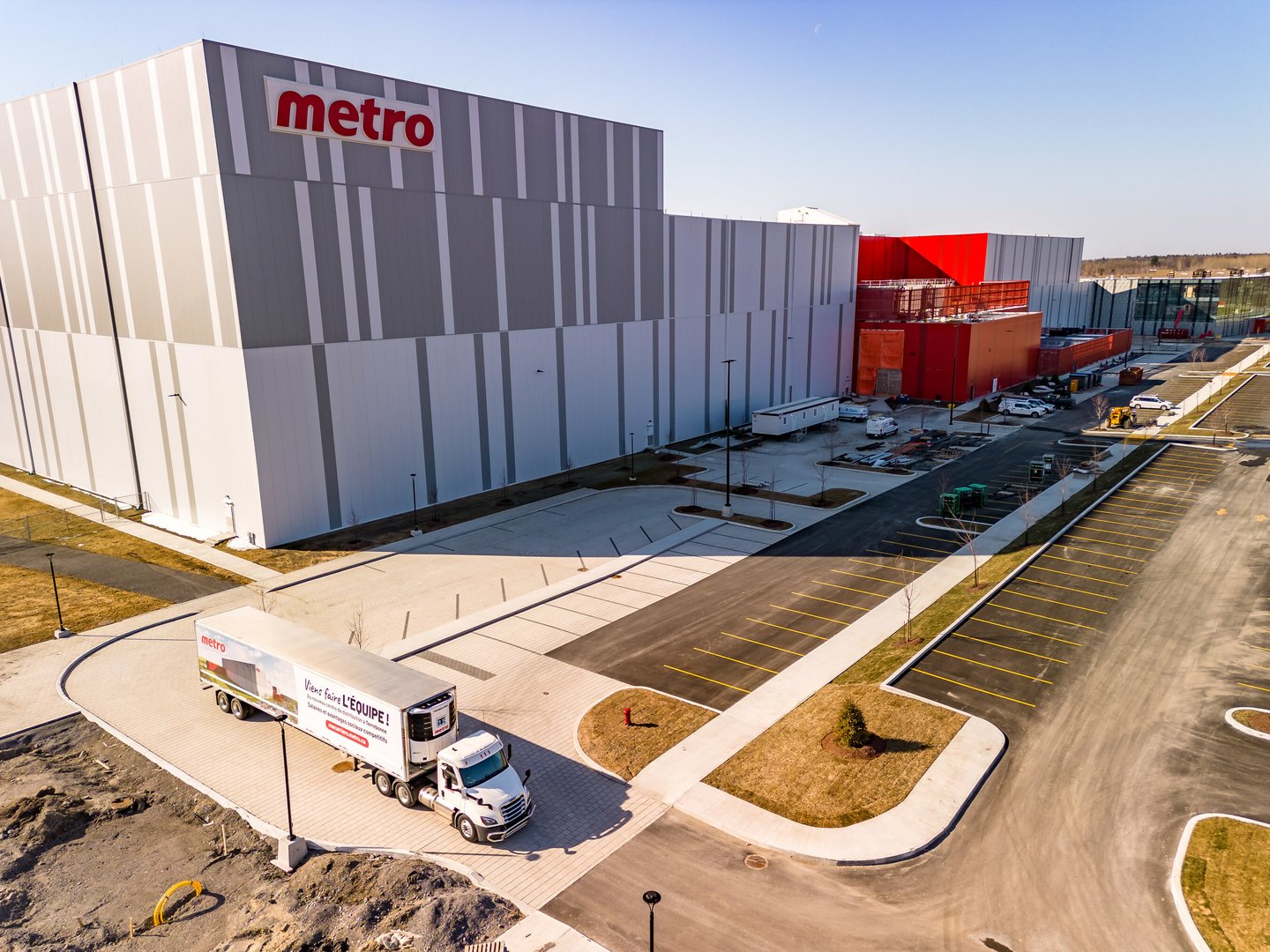How Metro’s Shannon Skinner Takes the Lead
Metro Inc.’s near-billion dollar investment to modernize its supply chain includes new and improved distribution centres (DCs), which have been semi- or fully-automated for timelier deliveries of fresher product to stores.
But for it to be as successful as possible, Metro has also embraced SCIP (Supply Chain Integrated Planning), a practice focused on earning – not dictating – adoption of new processes with employees from both ends of the supply chain. This planning is currently taking root at store level, where keeping quality product replenished has become critically important for profitability, not to mention keeping food waste low.
SCIP is being led by Metro’s director of supply chain optimization Shannon Skinner, a 35-year veteran of the Metro store chain. While pandemic lockdowns and staffing shortages underscored the need for companies to address gaps and vulnerabilities in their supply chain and harness new technology, she says Metro began its modernization project just before COVID, recognizing the days of shopper loyalty was over.
READ: Metro opens automated distribution centre in Quebec
“Shoppers have never been so savvy as they are today, they know products, prices, offers and services, and customers are just not as loyal as they used to be. They are not willing to wait for a product, they are quite OK going down the street to get it from another retailer,” says Skinner. “And so, we wanted to make sure that we have the right inventory in stores for our customers when they want it, while being conscious of the fact that we don’t want to overstock, because there’s cost in that, too. It’s about finding the right balance.”
The purpose of SCIP is to improve Metro’s supply chain practices by creating a smart, fully integrated network that is automated, agile and data driven. This will increase the visibility, efficiency and ultimately the resiliency of Metro’s network.
In taking the lead, Skinner (a 2017 Star Women in Grocery award winner) talks about the importance of change management to SCIP, mentors and what fuels her values at work.
What was the biggest thing to get right in leading this project?
What I learned very quickly was that this is a transformation. It isn’t just project implementation like changing an IT solution or a few processes. We are changing how we fundamentally manage supply chain end to end. So, we needed a very strong foundation around change management. That required us to clearly define our vision, our goals and our objectives. But defining success would have to go beyond a technical solution, because even with the best ones on the market, people are ultimately the key. We knew we’d be going in and changing how people have done their jobs for many years, even decades in some cases. I fully accepted that with change there would be challenge, I didn’t approach it as something to be forced, but rather worked to embed it within the culture of the organization. We needed to integrate the change with those people by utilizing their knowledge and skills.
READ: Metro talks supply chain investment, discount growth
How did you ensure that Metro employees were included?
I needed to bring the stakeholders on the journey, let them know we were in this transformation together. Clear communication and building trust is an important component to ensuring success when working with different business units. We looked at best practices in the industry around supply chain, like the best ways to flow product through the peaks and valleys of demand because customers don’t make purchases evenly throughout the week. But just because other organizations were using a particular technology or approach didn’t mean we would automatically, too. We needed to make sure it worked well for Metro. That required conversations with long-tenured employees with fantastic knowledge of the business, so that we weren’t just blindly saying, “This is now being automated.” It was more about utilizing their knowledge base to understand where we can make things better with technology and system implementation.
What’s next for SCIP?
This is a multi-year and phased program that began with introducing automation into the store operations ordering process for grocery products. Other phases incorporate fresh products, DSD (direct store delivery), e-commerce dark store and capacity planning. We will gain much needed visibility to the future volume our distribution centres will need to support. We will optimize product flow by providing our DC replenishment teams with new tools, process and technology. Better balancing of inbound and outbound volume will create efficiency and put resourcing where it is most needed.
READ: How tech is helping produce and profit margins
How would you describe your leadership style?
I listen, communicate and collaborate with others. It’s all about the people. My job is to ensure my teams have a clear vision and are well supported to ensure the success of our business. Leadership is not static, it is something that you need to foster and evolve with. I’ve learned to embrace change, to be adaptable, and most importantly, to lead with intention. Mentors have provided me with not only great insights, but a safe sounding board for me to be able to call them up and freely confide, “I have this idea” or “I have this problem and I don’t know how to address it.” Karleen Adams was one of my first managers when I became full-time at Metro and she said something to me that really resonated. She shared, “People will forget the words you said to them, but they will never forget how you made them feel.” And so, I always try to remember that in my interactions with people.
What fulfills you outside of work that makes you a better leader?
I think it's really important as leaders that we disconnect and refresh, because if we don’t, we can’t bring our best self to work. For me, that’s really focusing on my family. I have a wonderful, supportive husband and three active kids that keep us very busy. All three of our boys play competitive sports, which means I spend a ton of time in hockey arenas, soccer fields and lacrosse fields. But that has linked us closely to our community. It really brings out our core values as a family – trust, integrity and perseverance, all of which I bring to work with me.
Canadian Grocer's How I Take The Lead series speaks to people from across the industry about a specific project or initiative they led. You’ll hear from grocery leaders about their passions, how they tackle challenges, what they’ve learned and what keeps them motivated. Have a pitch? Send it to digital editor Jillian Morgan.




